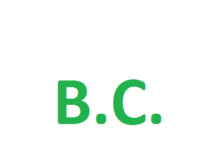WHILE most Canadians view multiculturalism as a positive force, they are still uncomfortable with some public expressions of religion, such as the wearing of hijabs or turbans, according to a new report by the Canadian Race Relations Foundation (CRRF).
The Report on Canadian Values, based on a recent Leger Marketing survey of about 2,005 adults, provides a timely insight into the societal issues – including multiculturalism and religious accommodation – that are top of mind for many Canadians.
“Most Canadians agree that multiculturalism contributes to social cohesion, has a positive impact on ethnic and religious minorities, and makes it easier for newcomers to adapt to, and adopt shared Canadian values,” said Anita Bromberg, Executive Director, CRRF. “Yet when it comes to religious expression in the public sphere, there is still a question of how far Canadians are willing to accede to meet multiculturalism’s promise of integration and inclusion.”
The CRRF commissioned the Association for Canadian Studies and Leger Marketing to conduct the poll via web panel during the week of October 6. The margin of error for an equivalent telephone survey is 1.9 points, 19 times out of 20.
When asked to identify their most important value from a list of 10, respect for human rights and freedoms scored highest at 21 per cent. When asked specifically about multiculturalism, 60 per cent agreed that it requires reasonable accommodation of cultural practices, including practices about which the respondents might feel uncomfortable. However, responses to other questions concerning multiculturalism reveal a troubling schism between theoretical acceptance and practical application, indicating a pressing need for an ongoing, national dialogue led by the CRRF.
There is a downside to multiculturalism, according to 64 per cent of respondents, who said it appears to allow for the pursuit of cultural practices that are incompatible with Canadian laws and norms. When asked to provide examples of such practices, 28 per cent identified the wearing of religious garb – hijabs, burkas and turbans – in public or security settings, as well as the wearing of turbans and hijabs by members of the police and RCMP. A further 10 per cent listed religious practices in general, and 8 per cent cited observance of religious holidays as incompatible. In comparison, Sharia law and honour killing scored low, at 5 per cent and 4 per cent, respectively.
Almost half of the respondents (46 per cent) said the government should discourage these practices and 40 per cent said it should be done by enforcing or imposing laws on all Canadians. Educating immigrants about Canadian society scored next at 15 per cent.
“There is still work to be done in fostering a better understanding and respect for the full expression of multiculturalism in Canada,” concluded Albert Lo, Chairperson, CRRF. “The Report on Canadian Values helps us to further understand issues that threaten to divide us, while providing essential keys to strengthening our shared core values. It also provides a strong starting point as we embark on the work of Our Canada, the CRRF’s newest project, which is funded by Citizenship and Immigration Canada, and which was launched last week in Ottawa.”












